Fazenda Oliveira, Sao Paulo State, Brazil, 1872
Join me behind the slightly ajar larder door as I spy on two Fazenda Oliveira kitchen maids discussing their new colleague.

The Fazenda
Celina wiped her hands on her apron and glanced over her shoulder toward the kitchen entrance. Thinking they were alone, she turned back and smirked at Estela across the large kitchen worktable. “This new maid is going to be trouble for sure. Have you noticed how all the men simper when she’s around? Where on earth did they find her?”
Estela waggled her eyebrows. “Well, she’s supposed to be old Adriana Dias’s niece raised in the Falkland Islands.”
Celina frowned. “Where?”
“You know. The Islas Malvinas. The Falklands, as the English call the islands now.”
“Uh-huh.” Celina snorted and winked at Estela. “If she’s Adriana’s niece, then I’m Imperador Dom Pedro Segundo’s lady, Princess of the Two Sicilies, Teresa Cristina herself! A red-haired, green-eyed Dias? Such a thing does not exist.”

The Coffee Plantation
“True.” Estela spread her arms in an imitation of grace and poise. “If she’s a Dias, I am Senhora Consuelo, Monarch of Fazenda Oliveira. All must bow to before me.”
Celina lifted her wooden spoon like a scepter. “Pleased to make your acquaintance, Senhora.”
“And yours, Imperadora.” Estela’s curtsey dragged the hem of her skirt against the floor.
A serious expression replaced the mirth in Celina’s eyes. “Silliness aside, have you listened to her accent? She doesn’t speak like anyone I’ve ever heard, not even the English gentleman who visited last month. Grew up around the English? I do not think so.”
“Well,” Estela replied, “I heard that she just appeared at Adriana and Ricardo’s house. Popped up out of nowhere. One day it was just the two of them, the next they had a niece. No one seems to know how she got here.”
“Really? She’s a strange one for certain.” Leaning over the table, Celina continued in a whisper, “Have you noticed the way the young master looks at her? She better watch out there.”
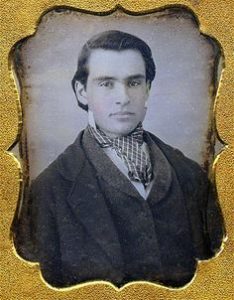 “Why?” Estela’s voice held a note of indignation. “Senhor Gustavo is so handsome and rich and nice.”
“Why?” Estela’s voice held a note of indignation. “Senhor Gustavo is so handsome and rich and nice.”
Celina raised her brow and tilted her head. “He may be beautiful to behold, but be wary. Have you not heard the story of why he was sent away for all those years?” Estela shook her head and stretched closer to Celina, who continued, “Rumor says he got one the maids with child and then killed her out of fear that Old Dragon Lady Consuelo would disinherit him for consorting with a peasant.”
A pink glow crept across Estela’s cheeks. “I can’t believe Senhor Gustavo could do such a terrible thing. He’s always been kind and polite to me.”
 “That’s because you look like a cow.” Celina pursed her lips. “Believe me. If you looked like this Maria, you would have much to fear.”
“That’s because you look like a cow.” Celina pursed her lips. “Believe me. If you looked like this Maria, you would have much to fear.”
Estela scowled. “As if you look so much better. You’re just a jealous cow yourself. Senhor Gus would not hurt a dog, much less kill someone.”
“So you believe, but what I know is that the girl disappeared. When her family came looking for her, they were sent away under threat from Consuelo.”
“That doesn’t mean the girl’s dead.”
“Perhaps.” Celina straightened up and placed a fist on each hip. “What I know for certain is this. We already have enough Oliveira bastards littering the ground and Senhora Consuelo is determined there will be no more. This Maria will be trouble. You can count on it!”
About the Book
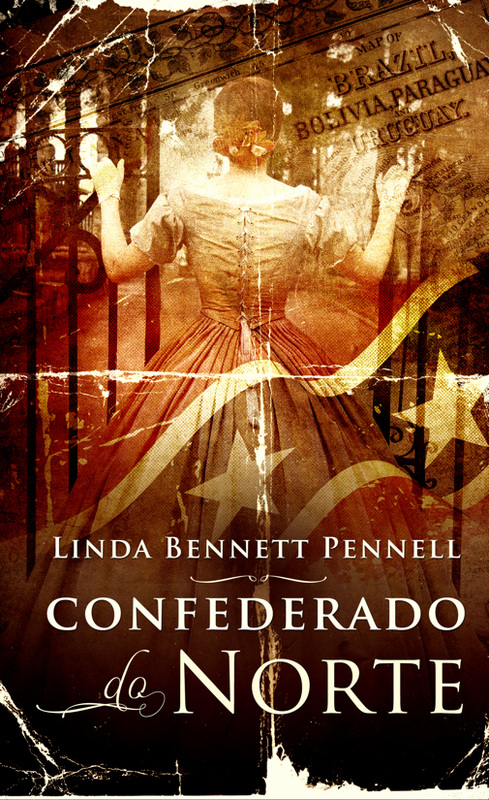 Set during the aftermath of the American Civil War, Confederado do Norte tells the story of Mary Catherine, a child torn from her war devastated home in Georgia and thrust into the primitive Brazilian interior where the young woman she becomes must learn to recreate herself in order to survive.
Set during the aftermath of the American Civil War, Confederado do Norte tells the story of Mary Catherine, a child torn from her war devastated home in Georgia and thrust into the primitive Brazilian interior where the young woman she becomes must learn to recreate herself in order to survive.
October, 1866.
Mary Catherine is devastated when her family emigrates from Georgia to Brazil because her father and maternal uncle refuse to accept the terms of Reconstruction following the Confederacy’s defeat. Shortly after arrival in their new country, she is orphaned, leaving her in Uncle Nathan’s care. He hates Mary Catherine, blaming her for his sister’s death. She despises him because she believes Nathan murdered her father. When Mary Catherine discovers Nathan’s plan to be rid of her as well, she flees into the mountain wilderness filled with jaguars and equally dangerous men. Finding refuge among kind peasants, she grows into a beauty, ultimately attracting the attention of the scion of a wealthy Portuguese family. Happiness and security seem within reach until civil unrest brings armed marauders who have an inexplicable connection to Mary Catherine. Recreating herself has protected Mary Catherine in the past, but this new crisis will demand all of the courage, intelligence, and creativity she possesses simply to survive.
~Excerpt~
I dreamt the dream again last night. In the small hours, I awoke in a tumble of bedclothes and bathed in perspiration despite the howling snowstorm blanketing the city. I rearranged quilts and plumped pillows, but sleep remained elusive. My mind refused to be quiet.
As often happens after such a night, I felt unable to rise at my usual hour and remained abed long after the maids cleared breakfast from the morning room. My daughter-in-law, bless her heart, meant well. I told her it was ridiculous to bring the doctor out on such a frigid day, but apparently the very old, like the very young, are not to be trusted in matters of judgment. After the doctor listened to my chest, a studied sympathy filled his eyes and he gently suggested that perhaps I should get my affairs in order. No doubt he wondered at my smile for he couldn’t have known I have no affairs other than my memories and the emotions they engender.
Unlike most elderly persons, I don’t revel in slogging through the past. It isn’t wrapped in pretty ribbons or surrounded by a golden aura. Instead, its voices haunt my dreams, demanding and accusatory. Until recently, I’ve resisted their intrusion into my waking life, but I now believe the past can no longer remain buried in nocturnal visions. It must be brought out into the light of day. From its earliest moments onward, the past’s substance must be gouged out, pulled apart, and examined bit by bit until its truth is exposed. While total objectivity may not be possible, I have concluded that committing the past to paper is my best hope for sorting facts from imaginings. Perhaps then I will achieve the peace that has so long hidden its face from me.
You see, when I was quite young—only a girl really—I killed four people. Two were dearly beloved, one was a hated enemy, and the last was a dangerous criminal.
 About the Author
About the Author
Linda has been in love with the past for as long as she can remember. Anything with a history, whether shabby or majestic, recent or ancient, instantly draws her in. She supposes it comes from being part of a large extended family that spanned several generations. Long summer afternoons on her grandmother’s porch or winter evenings gathered around her fireplace were filled with stories both entertaining and poignant. Of course being set in the American South, those stories were also peopled by some very interesting characters, some of whom have found their way into her work.
As for her venture in writing, she has this to say. “Writing has allowed me to reinvent myself. We humans are truly multifaceted creatures, but unfortunately we tend to sort and categorize each other into neat, easily understood packages that rarely reveal the whole person. Perhaps you, too, want to step out of the box in which you find yourself. I encourage you to look at the possibilities and imagine. Be filled with childlike wonder in your mental wanderings. Envision what might be, not simply what is. Let us never forget, all good fiction begins when someone says to herself, ‘Let’s pretend.’ ”
Linda resides in the Houston area with one sweet husband and one adorable German Shorthaired Pointer who is quite certain she’s a little girl.
“History is filled with the sound of silken slippers going downstairs and wooden shoes coming up.” Voltaire
Facebook: https://www.facebook.com/AuthorLindaBennettPennell
Website: http://www.lindapennell.com/
Twitter: @LindaPennell
Pinterest: https://www.pinterest.com/lindabennettpen/linda-bennett-pennell-author/?eq=linda%20bennett%20penn&etslf=9081
Newsletter Sign Up: http://eepurl.com/cCeQPX
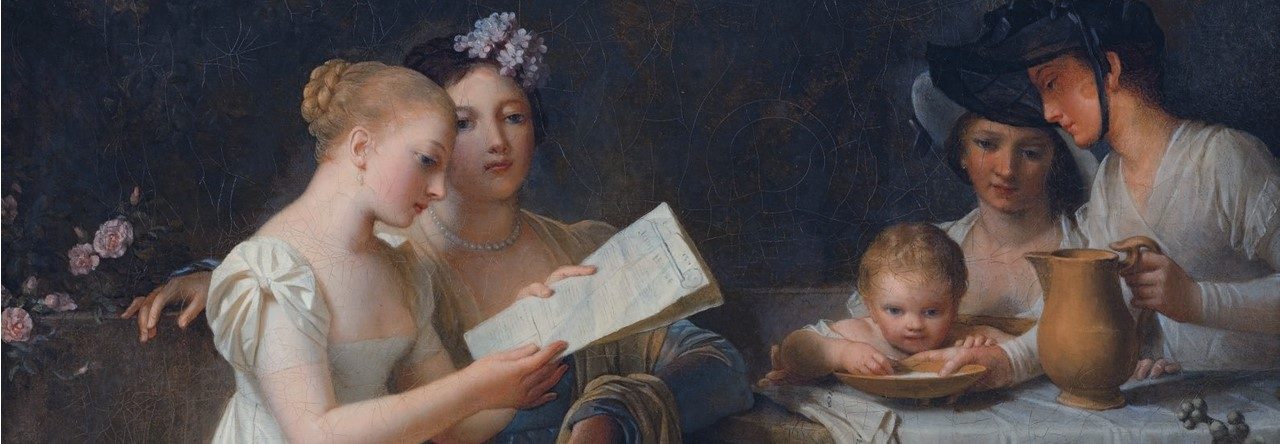
 Gentle Readers and Erstwhile Contributors,
Gentle Readers and Erstwhile Contributors,
 The Season is off to an excellent, if early, start. Lady S., daughter-in-law of the Duke of W. must be delighted with the attendance at her soirée, though perhaps less than pleased with the behaviour of some.
The Season is off to an excellent, if early, start. Lady S., daughter-in-law of the Duke of W. must be delighted with the attendance at her soirée, though perhaps less than pleased with the behaviour of some.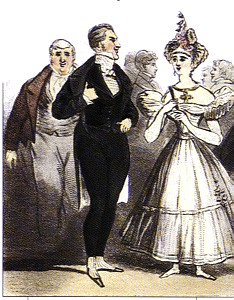 But the affairs of the great are far from the only business conducted at such an event, and last night was no exception.
But the affairs of the great are far from the only business conducted at such an event, and last night was no exception. One would expect a maiden in her second season to show more sense than to respond to a note from a man, and certainly the girl’s protectors to display more awareness of their charge’s whereabouts. Was the title ‘Earl’ a lure that caused her and her chaperone to cast discretion and rational thought to the wind?
One would expect a maiden in her second season to show more sense than to respond to a note from a man, and certainly the girl’s protectors to display more awareness of their charge’s whereabouts. Was the title ‘Earl’ a lure that caused her and her chaperone to cast discretion and rational thought to the wind?
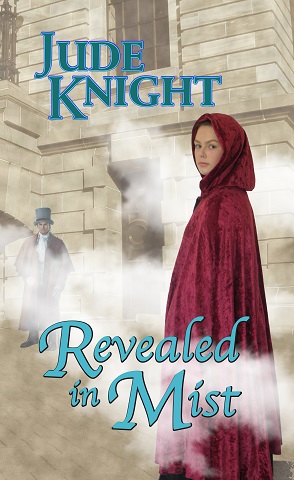 Prue’s job is to uncover secrets, but she hides a few of her own. When she is framed for murder and cast into Newgate, her one-time lover comes to her rescue. Will revealing what she knows help in their hunt for blackmailers, traitors, and murderers? Or threaten all she holds dear?
Prue’s job is to uncover secrets, but she hides a few of her own. When she is framed for murder and cast into Newgate, her one-time lover comes to her rescue. Will revealing what she knows help in their hunt for blackmailers, traitors, and murderers? Or threaten all she holds dear? The newest correspondent for The Teatime Tattler is masked, but the mask cannot disguise the youth of her voice or the slenderness of her form. Still, who better to interview a viscount about his life and his love, than a lady? The predictable, thrifty, chivalrous hero from Barbara Devlin’s book My Lady, The Spy takes the seat beside her in the park, as arranged.
The newest correspondent for The Teatime Tattler is masked, but the mask cannot disguise the youth of her voice or the slenderness of her form. Still, who better to interview a viscount about his life and his love, than a lady? The predictable, thrifty, chivalrous hero from Barbara Devlin’s book My Lady, The Spy takes the seat beside her in the park, as arranged.
 The Descendants
The Descendants Bestselling, Amazon All-Star author Barbara Devlin was born a storyteller, but it was a week long vacation to Bethany Beach, DE that forever changed her life. The little house her parents rented had a collection of books by Kathleen Woodiwiss, which exposed Barbara to the world of romance, and Shanna remains a personal favorite.
Bestselling, Amazon All-Star author Barbara Devlin was born a storyteller, but it was a week long vacation to Bethany Beach, DE that forever changed her life. The little house her parents rented had a collection of books by Kathleen Woodiwiss, which exposed Barbara to the world of romance, and Shanna remains a personal favorite. The boy was gone when I got back from the funeral. Little bastard. I told him I’d kick him to next Tuesday if dinner wasn’t on the table, but nothing was prepared, and he was nowhere to be found. And he’d let the fire go out. He’ll come back when he’s hungry, and I’ll have the skin off his back, see if I don’t.
The boy was gone when I got back from the funeral. Little bastard. I told him I’d kick him to next Tuesday if dinner wasn’t on the table, but nothing was prepared, and he was nowhere to be found. And he’d let the fire go out. He’ll come back when he’s hungry, and I’ll have the skin off his back, see if I don’t. We didn’t find the lad till we was near Avonmouth. ‘E was hid in the coal, but we saw ‘im when ‘e tried to escape over the side. ‘E fair wriggled when we caught ‘im, begged us to let ‘im go. But ‘e owed us ‘is passage, and so I told him.
We didn’t find the lad till we was near Avonmouth. ‘E was hid in the coal, but we saw ‘im when ‘e tried to escape over the side. ‘E fair wriggled when we caught ‘im, begged us to let ‘im go. But ‘e owed us ‘is passage, and so I told him. He was a mystery, young David. Turned up in a snow storm, he did. Bessie the dog found him when Matthew went out after the sheep, huddled up in the midst of the flock where they’d taken shelter in the lee of the old stone wall.
He was a mystery, young David. Turned up in a snow storm, he did. Bessie the dog found him when Matthew went out after the sheep, huddled up in the midst of the flock where they’d taken shelter in the lee of the old stone wall. My tiger? He’s taken off. Ungrateful brat. Good boy with the horses, too. But there you go. That’s what I get for taking a boy off the streets. I found him in Oxford, you know. Oh yes, I told you before, didn’t I. He made sure I got back to my inn after a rather exciting evening. Didn’t rob me, either, though he could have. I was somewhat—er—elevated.
My tiger? He’s taken off. Ungrateful brat. Good boy with the horses, too. But there you go. That’s what I get for taking a boy off the streets. I found him in Oxford, you know. Oh yes, I told you before, didn’t I. He made sure I got back to my inn after a rather exciting evening. Didn’t rob me, either, though he could have. I was somewhat—er—elevated. Last time spy Prudence Virtue and thief-taker David Wakefield worked together on a case, they parted in bitterness. When different employers send them to investigate a spying ring that blackmails aristocrats for access to secrets, they need to decide whether to combine forces.
Last time spy Prudence Virtue and thief-taker David Wakefield worked together on a case, they parted in bitterness. When different employers send them to investigate a spying ring that blackmails aristocrats for access to secrets, they need to decide whether to combine forces.